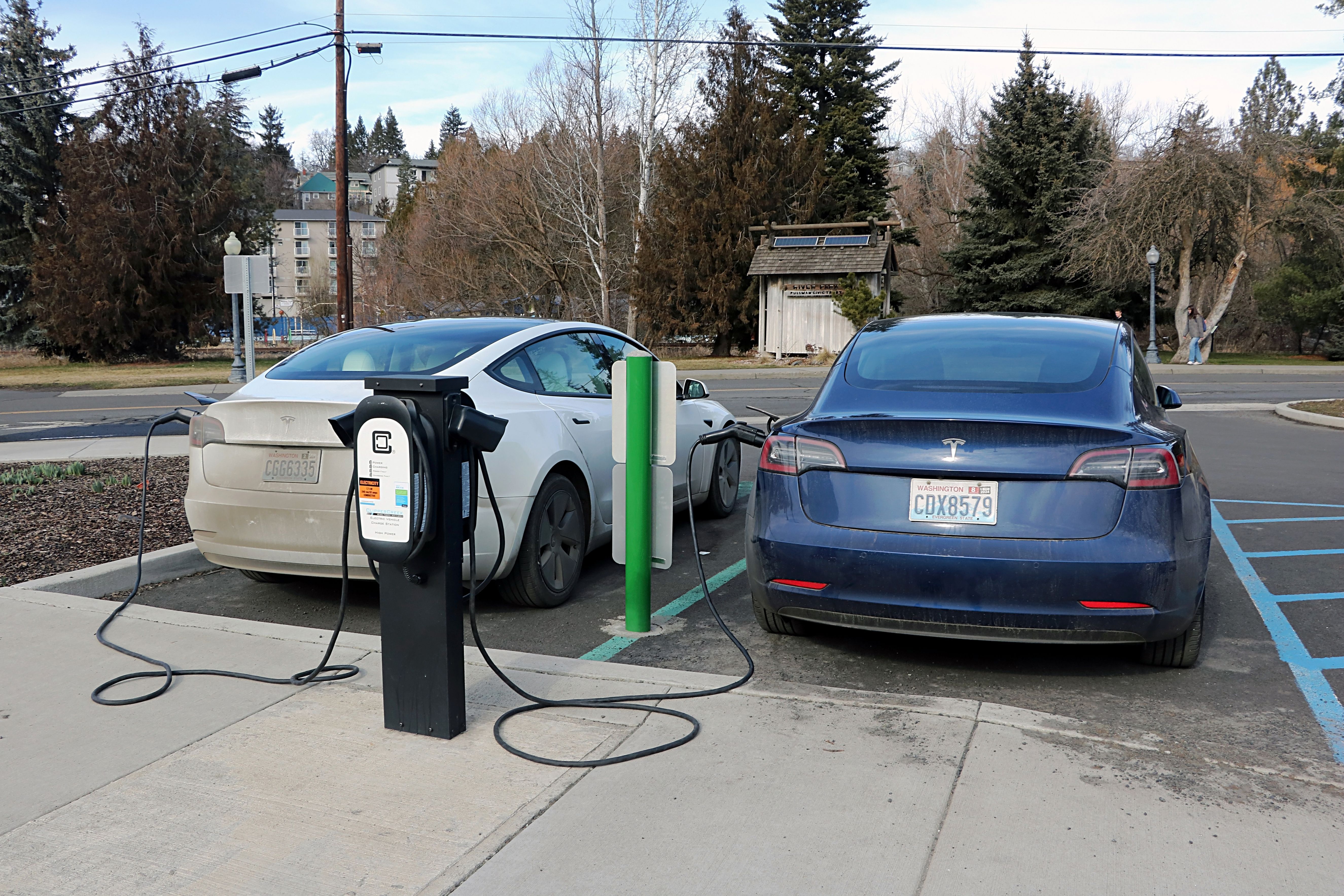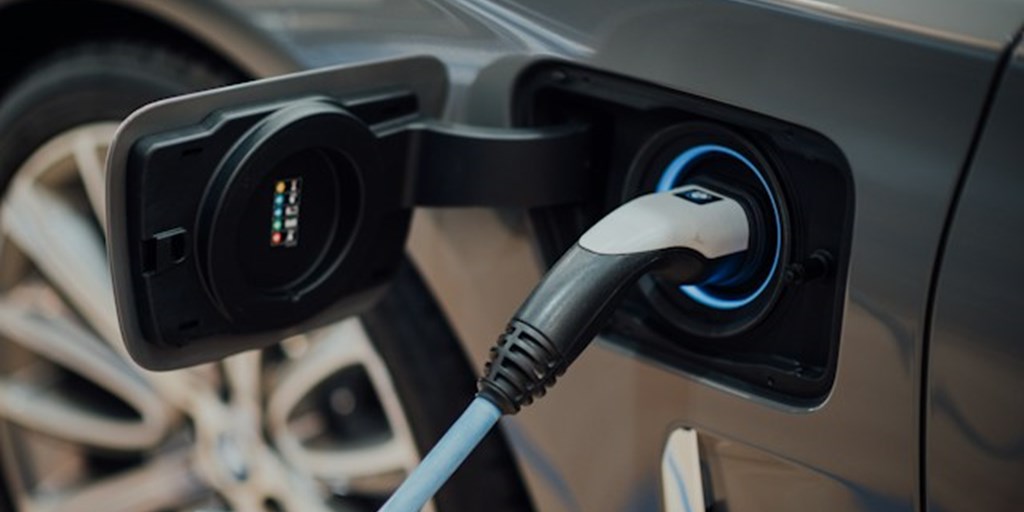The Future of Electric Vehicles and Why You Should Buy EV Charging news Now
The Future of Electric Vehicles and Why You Should Buy EV Charging news Now
Blog Article
New Developments in EV Charging: Just How the Market Is Advancing to Meet Need
As the electrical vehicle (EV) market continues to increase, the charging framework is going through substantial transformations to attend to the rising need. Trick growths in ultra-fast billing modern technologies, combined with smart grid combination, are reshaping the landscape. Innovations in battery modern technology assurance enhanced efficiency and sustainability. The quest of global charging standards continues to be an essential factor in making it possible for seamless individual experiences and widespread adoption. The ramifications of these improvements raise essential inquiries concerning the future of EV billing and its function in the more comprehensive power environment.
Growth of Billing Facilities
The rapid growth of electric car (EV) charging infrastructure is an important part in helping with the widespread fostering of electric wheelchair. As governments, private business, and consumers progressively acknowledge the significance of minimizing carbon discharges, financial investments in charging networks have actually risen. This infrastructure growth is necessary to reduce range anxiousness, guaranteeing that EV customers have hassle-free accessibility to charging stations.
Substantial innovations in charging station technology and deployment methods have actually emerged. Urban locations are seeing a proliferation of public charging stations, while country regions are gradually being incorporated into the billing network. Additionally, partnerships in between automotive makers and billing carriers are coming to be extra usual, facilitating the establishment of extensive networks that improve individual experience and ease of access.
Additionally, the integration of sustainable energy sources right into charging terminals is getting momentum, promoting sustainability in the EV ecological community. This transition not just supports environmental goals but also aligns with the rising need for environment-friendly energy options amongst consumers.
Ultra-Fast Charging Technologies
Ultra-fast charging technologies stand for a considerable jump ahead in the EV charging landscape, making it possible for electrical cars to reenergize in a fraction of the time compared to conventional billing approaches. These developments generally deliver power degrees surpassing 150 kW, with some systems getting to up to 350 kW or even more, dramatically decreasing charging times to as little as 15-30 mins for a significant fee.
Secret allowing technologies consist of advancements in battery chemistry, power electronic devices, and thermal management systems. For circumstances, high-capacity batteries with boosted thermal security permit for faster billing without overheating. Furthermore, developments accountable facilities, such as liquid-cooled wires and modular billing stations, facilitate efficient power transfer, improving the general user experience
Significant automotive manufacturers and modern technology companies are proactively buying ultra-fast billing networks, recognizing the important role they play in getting rid of array stress and anxiety and increasing the fostering of electric vehicles. As these innovations become a lot more widely available, the EV market is expected to witness substantial growth, making electric wheelchair a more eye-catching option for customers. Overall, ultra-fast billing modern technologies are critical fit the future of sustainable transport, leading the method for an extra comprehensive and effective charging environment.
Smart Grid Assimilation

With demand reaction techniques, smart grid systems can change charging timetables based upon grid conditions and electrical power pricing. For example, during durations of high need, billing can be delayed to off-peak hours, causing reduced expenses for consumers and minimized pressure on the grid. Additionally, vehicle-to-grid (V2G) technologies allow EVs to release power back into the grid, providing secondary services and boosting grid security.
Integration with renewable resource sources further increases the sustainability of EV charging. By aligning billing activities with durations of high solar or wind generation, wise grids promote a greener billing framework. Eventually, smart grid integration not just supports the growing demand for EVs yet likewise adds to an extra resilient and lasting power future, placing the industry for lasting success.
Battery Advancements
Amidst the quick development of electrical vehicles (EVs), battery technologies stand at the forefront, driving advancements in sustainability, performance, and efficiency. As the need for EVs surges, scientists and makers are concentrating on improving battery modern technologies to resolve difficulties such as variety stress and anxiety and billing times.
Lithium-ion batteries continue to be one of the most commonly utilized modern technology, yet brand-new products and chemistries are arising to improve energy look these up density and longevity. Solid-state batteries, for example, assure greater power storage capability and enhanced security by replacing liquid electrolytes with solid ones. This change could considerably reduce the threat of fire and increase the life-span of batteries.
In addition, improvements in battery recycling procedures are important for sustainability. Companies are establishing approaches to recover valuable products like lithium, cobalt, and nickel from used batteries, advertising a circular economic climate and minimizing environmental influence.

Worldwide Charging Specifications

Initiatives are underway to develop global charging requirements that promote compatibility among various EV versions and charging stations. Organizations such as the International Electrotechnical Commission (IEC) and the Society of Automotive Engineers (SAE) are functioning collaboratively with automotive producers and power carriers to create extensive guidelines. EV Charging news. These requirements purpose to streamline the charging process, decrease the websites requirement for several adapters, and improve individual experience
In addition, standardization can significantly bolster the expansion of the charging network, as it encourages investment by making infrastructure development much more predictable and effective. As the EV market matures, a unified method to charging standards will certainly be vital for ensuring that customers can bill their lorries comfortably and dependably, consequently supporting the broader transition to lasting transport.
Final Thought
The electrical car charging sector is undertaking considerable makeover to address the rising need for sustainable transportation. Innovations accountable facilities, ultra-fast innovations, website link smart grid assimilation, and innovative battery solutions are pivotal in boosting individual experience and operational performance. Additionally, the pursuit of international charging criteria is critical for ensuring interoperability throughout different areas and systems. Jointly, these advancements place the market to sustain a wider fostering of electric vehicles, eventually adding to a much more lasting future.
Urban areas are seeing a spreading of public billing stations, while rural areas are progressively being integrated into the charging network. In addition, growths in charging facilities, such as liquid-cooled cords and modular billing stations, help with effective power transfer, improving the general customer experience.
Overall, ultra-fast charging innovations are essential in forming the future of lasting transport, leading the means for a more efficient and extensive charging environment. - EV Charging news
By straightening billing tasks with durations of high solar or wind generation, smart grids promote a greener charging infrastructure.Efforts are underway to establish global charging standards that facilitate compatibility among various EV models and charging terminals.
Report this page